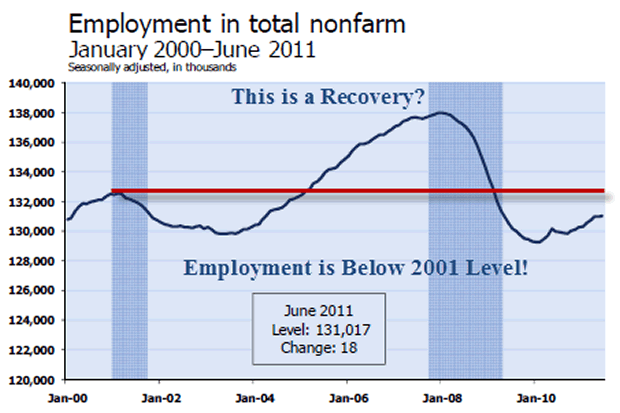Gary
DP Veteran
- Joined
- Jan 20, 2012
- Messages
- 1,486
- Reaction score
- 364
- Gender
- Male
- Political Leaning
- Undisclosed
To be honest, I don't know what they're comparing. They're talking about a decline in the labor participation rate that's neither attributable to retirement nor the bad economy. So what do they attribute it to? And why does taking that mystery drop into consideration make that rate more "real" than the actual rate?
If you want to get a good estimate of unemployment, compare 2010 data to 2000.
http://www.bls.gov/cps/cpsaat1.pdf
The last column are the figures for Not in Labor Force. Since 2000 only had 4.0% unemployment and low unemployment for prior years, it isn't going to get much better than that. 2000 was a census years, so not only can the change for Not in Labor Force be calculated based on what they call 4% full employment, but the census data can be used to correct the difference in the amount of the population over 65. This give a good estimate of the people not counted in the unemployment statistic who will return to the labor force, when times are good.
The census also publishes data for yearly estimates, so the 2010 data can be updated to 2011 and minor monthly changes can be estimated, just based on changes of the 65 and over population, which are quite small.
The corrections are more accurate than the figures supplied by BLS. You can check how BLS U3 and U6 data compares and see how your calculated U6, based on 2000 stands up.


